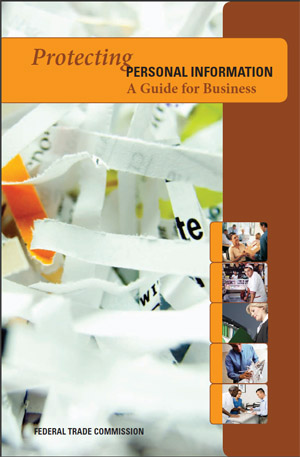Protecting Personal Information
A Guide for Business

Most companies keep sensitive personal information in their files — names, Social Security numbers, credit card, or other account data — that identifies customers or employees.
This information often is necessary to fill orders, meet payroll, or perform other necessary business functions. However, if sensitive data falls into the wrong hands, it can lead to fraud, identity theft, or similar harms. Given the cost of a security breach—losing your customers’ trust and perhaps even defending yourself against a lawsuit—safeguarding personal information is just plain good business.
Effective data security starts with assessing what information you have and identifying who has access to it. Understanding how personal information moves into, through, and out of your business and who has—or could have—access to it is essential to assessing security vulnerabilities. You can determine the best ways to secure the information only after you’ve traced how it flows.
Learn How To Protect Your Employees’ Personal Information!
NOTE: Your information is safe with us and will not be shared with any 3rd parties.

